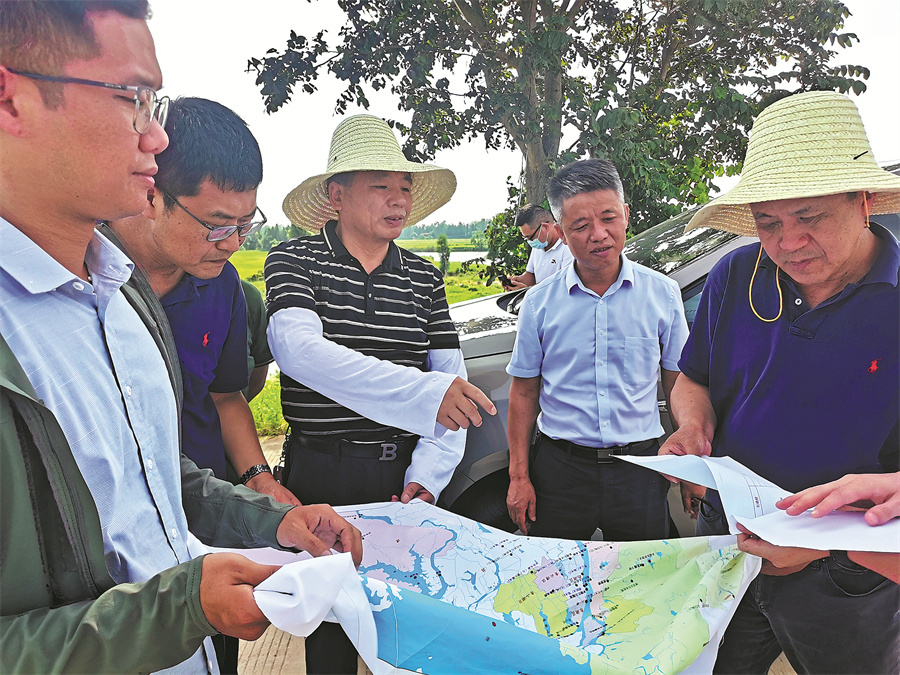CPPCC members diligent in shaping environmental policy

CPPCC member Wei Yuansong (right) conducts field research at Poyang Lake near Nanchang, Jiangxi province, in July 2022. [Photo/China Daily]
New focus
Gu said in recent years China has achieved historic, comprehensive and pivotal accomplishments in environmental governance. Looking to the future, whether it is green, low-carbon development or the construction of a Beautiful China, there are still many challenges and difficulties that require political advisers to provide suggestions.
With 85 members, it is the ninth-largest of the 34 participating groups in the 14th CPPCC National Committee. The members' professional backgrounds include ecological environment, natural resources, water projects, urban planning, forestry, meteorology, transportation, chemistry and law.
About 40 percent are government officials, including Huang Runqiu, minister of ecology and environment, Zhang Jianhua, director of the National Energy Administration, and officials from the Ministry of Water Resources and the Ministry of Natural Resources.
Some 30 percent are experts and scholars in related fields, including university presidents, directors of research institutes and academicians from both the Chinese Academy of Sciences and the Chinese Academy of Engineering.
In addition, about 20 percent of the members work for energy and chemical companies, including China National Nuclear Power, Sinochem Holdings, State Grid and China Rare Earth.
Gu said bringing these high-ranking officials, senior executives and experts together allows for in-depth exchanges from the perspectives of management, operation, academia and more, giving them the opportunity to truly complement each others' strengths.
"As a scholar, I have learned a great deal from those officials and executives, helping to make my proposals and suggestions more practical," he said, adding that over the past year, he has participated in several research and consultation meetings, covering topics such as a mechanism to realize the value of ecological products, and a recycling and utilization system for the green energy industry.
Members in the group have focused on how to achieve both economic prosperity and environmental sustainability — that is, how to simultaneously or collaboratively achieve high-quality development and high-level protection, he added.
Wei Yuansong, a member of the National Committee of the CPPCC, who focuses on water pollution control technology at the Research Center for Eco-Environmental Sciences, Chinese Academy of Sciences, said the professional team helps enable the CPPCC to better carry out its work and provide support for the country's construction of an ecological civilization.
Last year, Wei and other members participated in several major research projects, all led by leaders of the CPPCC, involving national water networks, ecological protection in the Yangtze River Economic Belt and other important national plans.
Following these research projects, the members jointly authored reports that were provided to relevant decision-making departments for reference and some of the suggestions were also incorporated into relevant documents, he said.
Last year, members of the environmental and resources group submitted over 160 proposals to the CPPCC National Committee, and they delivered speeches at consultative sessions and meetings attended by government officials.
Additionally, they submitted more than 200 pieces related to public sentiment and social information and participated in inspections, research projects and instances of democratic supervision, according to the CPPCC National Committee.
Copyright © The National Committee of the Chinese People's Political Consultative Conference.
All rights reserved. Presented by China Daily.
京ICP备08100501号-1

